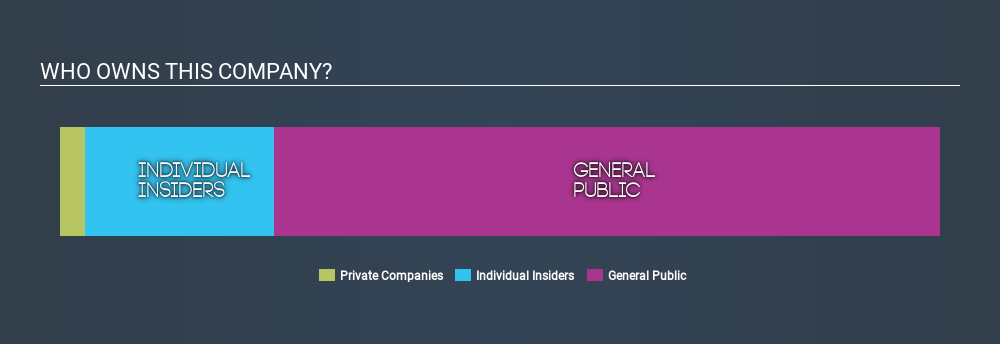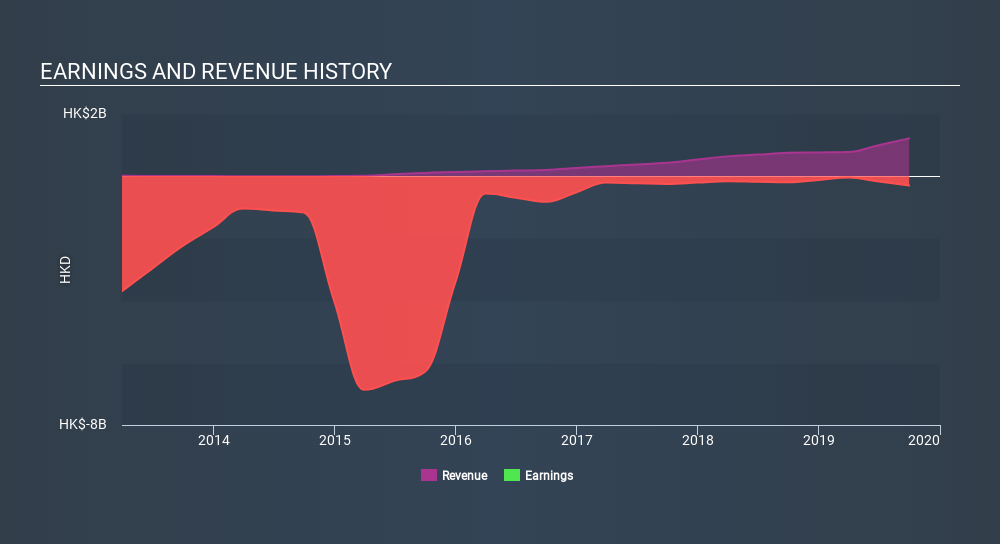- Hong Kong
- /
- Oil and Gas
- /
- SEHK:276
Could The Mongolia Energy Corporation Limited (HKG:276) Ownership Structure Tell Us Something Useful?

A look at the shareholders of Mongolia Energy Corporation Limited (HKG:276) can tell us which group is most powerful. Insiders often own a large chunk of younger, smaller, companies while huge companies tend to have institutions as shareholders. Warren Buffett said that he likes 'a business with enduring competitive advantages that is run by able and owner-oriented people'. So it's nice to see some insider ownership, because it may suggest that management is owner-oriented.
Mongolia Energy is a smaller company with a market capitalization of HK$145m, so it may still be flying under the radar of many institutional investors. In the chart below, we can see that institutional investors have not yet purchased shares. We can zoom in on the different ownership groups, to learn more about Mongolia Energy.
View our latest analysis for Mongolia Energy

What Does The Lack Of Institutional Ownership Tell Us About Mongolia Energy?
Institutional investors often avoid companies that are too small, too illiquid or too risky for their tastes. But it's unusual to see larger companies without any institutional investors.
There are multiple explanations for why institutions don't own a stock. The most common is that the company is too small relative to fund under management, so the institition does not bother to look closely at the company. Alternatively, there might be something about the company that has kept institutional investors away. Institutional investors may not find the historic growth of the business impressive, or there might be other factors at play. You can see the past revenue performance of Mongolia Energy, for yourself, below.

Mongolia Energy is not owned by hedge funds. Our data suggests that Lin Shing Lo, who is also the company's Top Key Executive, holds the most number of shares at 16%. When an insider holds a sizeable amount of a company's stock, investors consider it as a positive sign because it suggests that insiders are willing to have their wealth tied up in the future of the company. The second and third largest shareholders are Kar-Shun Cheng and Estate of Yu-Tung Yu Cheng, holding 4.2% and 3.0%, respectively.
Our studies suggest that the top 8 shareholders collectively control less than 50% of the company's shares, meaning that the company's shares are widely disseminated and there is no dominant shareholder.
While studying institutional ownership for a company can add value to your research, it is also a good practice to research analyst recommendations to get a deeper understand of a stock's expected performance. Our information suggests that there isn't any analyst coverage of the stock, so it is probably little known.
Insider Ownership Of Mongolia Energy
The definition of company insiders can be subjective, and does vary between jurisdictions. Our data reflects individual insiders, capturing board members at the very least. Company management run the business, but the CEO will answer to the board, even if he or she is a member of it.
Insider ownership is positive when it signals leadership are thinking like the true owners of the company. However, high insider ownership can also give immense power to a small group within the company. This can be negative in some circumstances.
It seems insiders own a significant proportion of Mongolia Energy Corporation Limited. Insiders own HK$31m worth of shares in the HK$145m company. It is great to see insiders so invested in the business. It might be worth checking if those insiders have been buying recently.
General Public Ownership
The general public -- mostly retail investors -- own 76% of Mongolia Energy. This level of ownership gives retail investors the power to sway key policy decisions such as board composition, executive compensation, and the dividend payout ratio.
Next Steps:
It's always worth thinking about the different groups who own shares in a company. But to understand Mongolia Energy better, we need to consider many other factors. Be aware that Mongolia Energy is showing 3 warning signs in our investment analysis , you should know about...
If you would prefer check out another company -- one with potentially superior financials -- then do not miss this free list of interesting companies, backed by strong financial data.
NB: Figures in this article are calculated using data from the last twelve months, which refer to the 12-month period ending on the last date of the month the financial statement is dated. This may not be consistent with full year annual report figures.
If you spot an error that warrants correction, please contact the editor at editorial-team@simplywallst.com. This article by Simply Wall St is general in nature. It does not constitute a recommendation to buy or sell any stock, and does not take account of your objectives, or your financial situation. Simply Wall St has no position in the stocks mentioned.
We aim to bring you long-term focused research analysis driven by fundamental data. Note that our analysis may not factor in the latest price-sensitive company announcements or qualitative material. Thank you for reading.
About SEHK:276
Mongolia Energy
An investment holding company, engages in the coal mining, exploration, processing, and other resources related operations in the People’s Republic of China and Mongolia.
Good value slight.
Market Insights
Community Narratives



